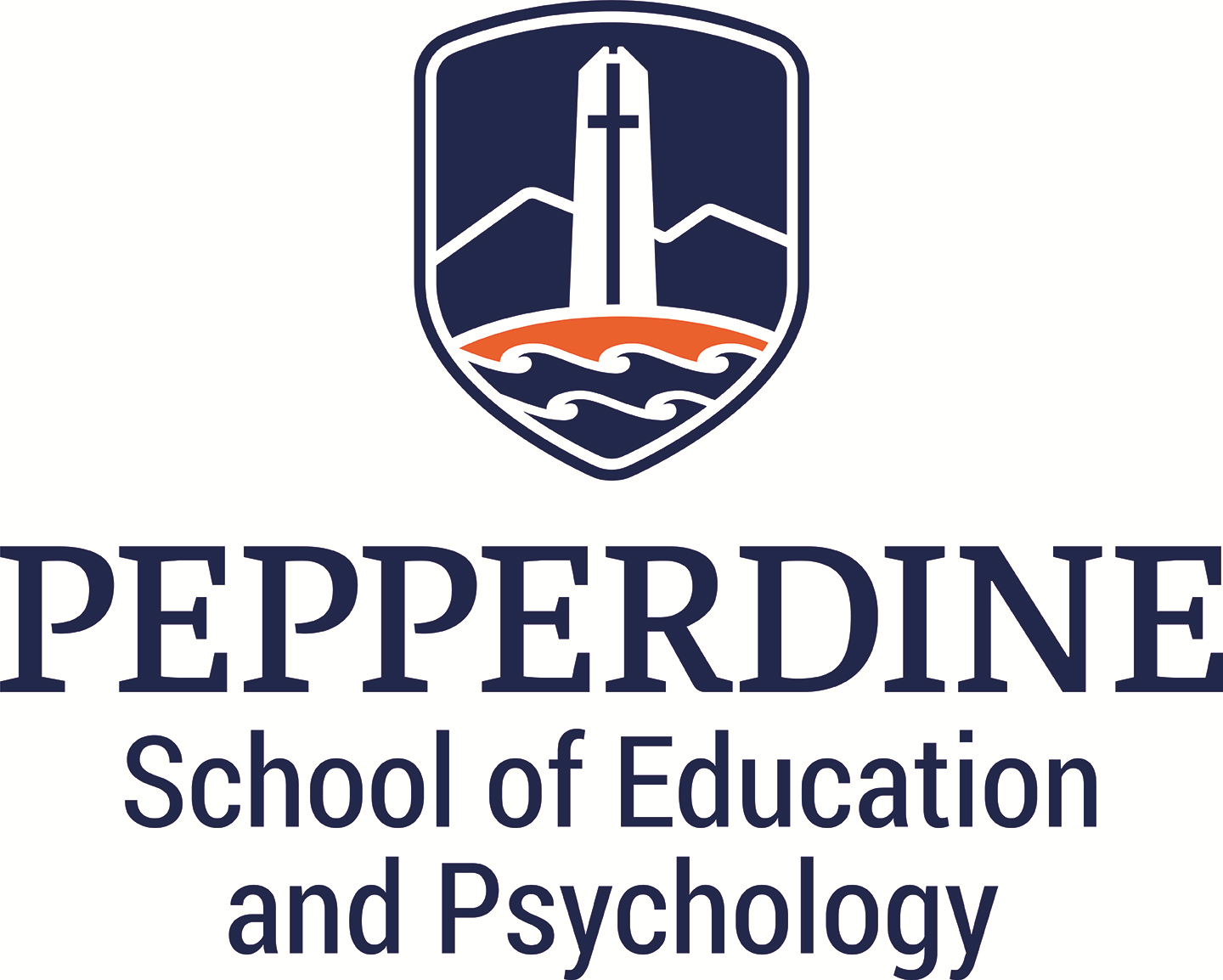Have you ever thought about pursuing a degree in psychology? In today’s world, you can do so while maintaining the flexibility of online education. Accredited online psychology degree programs offer a unique opportunity for you to pursue your passion for understanding the human mind and behavior.
Gone are the days when pursuing a higher education required uprooting your life and committing to a fixed schedule. We live in a time where accredited online programs not only provide quality education but also empower you to tailor your studies around your life’s demands.
Whether you’re a full-time professional, a recent high school graduate, a stay-at-home parent, or someone looking to switch careers, we’re going to cover accredited online psychology degree programs that offer the flexibility to advance your education without compromising your current commitments.
 National University : Doctor of Philosophy in Psychology (Accredited. No GRE. Scholarships Available)
National University : Doctor of Philosophy in Psychology (Accredited. No GRE. Scholarships Available) The Chicago School : Ph.D. in Applied Behavior Analysis (Online Programs.)
The Chicago School : Ph.D. in Applied Behavior Analysis (Online Programs.) The Chicago School : Ph.D. in Counselor Education and Supervision (Online Programs.)
The Chicago School : Ph.D. in Counselor Education and Supervision (Online Programs.) Pepperdine University : Master of Arts in Psychology (No GRE required)
Pepperdine University : Master of Arts in Psychology (No GRE required) Purdue University Global : Masters in Psychology (100% Online)
Purdue University Global : Masters in Psychology (100% Online) Southern New Hampshire University (SNHU) : MS Psychology (Flexible. Affordable. And achievable.)
Southern New Hampshire University (SNHU) : MS Psychology (Flexible. Affordable. And achievable.) Southern New Hampshire University (SNHU) : MS Psychology with concentration in Child and Adolescent Developmental Psychology (Flexible. Affordable. And achievable.)
Southern New Hampshire University (SNHU) : MS Psychology with concentration in Child and Adolescent Developmental Psychology (Flexible. Affordable. And achievable.) Southern New Hampshire University (SNHU) : Online Psychology Degrees (Bachelors and Masters. Flexible. Affordable. And achievable.)
Southern New Hampshire University (SNHU) : Online Psychology Degrees (Bachelors and Masters. Flexible. Affordable. And achievable.)Just like you, many aspiring students are curious about the opportunities, challenges, and benefits these programs bring. We’ll explore what program accreditation is, why it’s important, and the types of psychology degrees you can pursue.
By the end of this article, you’ll have a clearer understanding of how accredited online psychology programs can align with your aspirations and equip you with the skills and expertise to thrive in the dynamic field of psychology.
What Is Accreditation for Psychology Degrees?
Accreditation for psychology degrees is a formal recognition and endorsement of the quality and standards upheld by educational institutions and programs offering studies in psychology. This process involves a rigorous evaluation conducted by accrediting bodies — organizations authorized to assess whether a program meets predefined criteria of excellence — examining curriculum, faculty, and other factors.
At its core, accreditation acts as a seal of approval from the academic community and industry professionals, assuring students that the program aligns with established benchmarks and equips them with the knowledge and skills necessary to excel in the realm of psychology.
Ultimately, understanding the nuances of accreditation empowers you to make an educated decision about the psychology degree program that best suits your aspirations and goals. Here are the three types of accreditation:
APA Accreditation
APA Accreditation, granted by the American Psychological Association (APA), is one of the highest standards of excellence for psychology programs. It signifies that a psychology program meets rigorous standards set by the APA for curriculum, faculty expertise, student support, and ethical training.
This accreditation not only assures students of a high-quality education that aligns with industry standards but also enhances graduates’ prospects for licensure and employment within the field of psychology.
Discover APA Accredited Psychology Degrees
- APA Accredited Online PsyD Programs that Don’t Require the GRE
- APA Accredited Online Master’s in Psychology
- Top APA Accredited PsyD Programs
- APA Accredited Hybrid PsyD Programs
PCSAS Accreditation
PCSAS Accreditation, provided by the Psychological Clinical Science Accreditation System (PCSAS), represents a specialized endorsement for clinical psychology doctoral programs with a focus on scientific rigor and evidence-based practice. This accreditation ensures that programs adhere to stringent criteria related to research competence, clinical training, and integration of science into clinical practice.
PCSAS-accredited programs produce graduates who are well-equipped to apply cutting-edge research to real-world clinical settings, promoting a strong foundation in both scientific inquiry and practical skills within the field of clinical psychology.
APA vs PCSAS
If you’re curious about the distinctions between APA and PCSAS accreditation, here are the key differences:
APA Accreditation
- Broad spectrum: Covers various psychology programs across different psychology specializations.
- Comprehensive standards: Focuses on well-rounded quality standards, encompassing curriculum, faculty qualifications, student support, and ethical training.
- General validation: Provides a wide-ranging validation of program quality and alignment with industry standards.
- Versatility: Enhances graduates’ employability across diverse fields within psychology and facilitates licensure.
- Holistic education: Emphasizes a comprehensive education that addresses the diverse aspects of psychology.
PCSAS Accreditation
- Specialized focus: Targets clinical psychology doctoral programs exclusively, with a distinct emphasis on scientific rigor and evidence-based practice.
- Research integration: Concentrates on producing graduates with advanced research skills and the ability to integrate scientific principles into clinical settings.
- Scientific approach: Prioritizes programs that train graduates to apply scientific methods directly to clinical interventions.
- Clinical orientation: Centers on the unique demands of clinical psychology, particularly in terms of research training and scientific application in therapy.
- Niche endorsement: Offers a specialized endorsement for programs that closely align with the scientific foundations of clinical psychology.
Consider a Featured Online Counseling Program
| School and Program Information | Online Program? Entry Requirements | Course Information | |
|---|---|---|---|
|
National University
Doctor of Philosophy in Psychology
COAMFTE Accredited
|
✔ Online
GRE Scores Not Required
|
Earn a degree in Counseling Psychology, Gerontology, or Substance-Related and Addictive Disorder
|
Learn More |
|
The Chicago School
Ph.D. in Applied Behavior Analysis
Credential Track options are also available.
|
✔ Online
Master's Degree Required.
|
Prepare to learn the skills needed to bring about socially significant behavioral changes through evidence-based program development.
|
Learn More |
|
The Chicago School
Ph.D. in Counselor Education and Supervision
|
✔ Online
Master's Degree Required.
|
Prepares graduates to act as educators and leaders in the field of counseling.
|
Learn More |
|
Pepperdine University
Master of Arts in Psychology
Open to all undergrad majors
|
✔ Online
No GRE Required
|
Pepperdine University’s online Master of Arts in Psychology program is open to all undergrad majors and can be completed in about 18 months.
|
Learn More |
|
Purdue University Global
Masters in Psychology
HLC Accredited
|
✔ Online
|
Advance your expertise and career studying behavior approaches, neuropsychological perspectives, issues in psychopathology, and cognitive psychology.
|
Learn More |
|
Southern New Hampshire University (SNHU)
MS Psychology
NECHE Accredited
|
✔ Online
No application fee or GRE/GMAT scores required
|
Optional concentrations in child and adolescent development psychology, forensic psychology, or industrial organizational psychology.
|
Learn More |
|
Southern New Hampshire University (SNHU)
MS Psychology with concentration in Child and Adolescent Developmental Psychology
NECHE Accredited
|
✔ Online
No application fee or GRE/GMAT scores required
|
Develop assessment, evaluation and treatment strategies that address the unique individual, cultural and psychological needs of children and families.
|
Learn More |
|
Southern New Hampshire University (SNHU)
Online Psychology Degrees
Bachelors and Masters NECHE Accredited
|
✔ Online
No application fee or GRE/GMAT scores required
|
With our unique programs - from child and adolescent development to forensic psychology - you'll be prepared for a wide variety of careers.
|
Learn More |
*Sponsored Counseling Programs
For detailed degree information, view the guides to:
Online CACREP Accredited programs | Online MPCAC Accredited programs
Why Is Accreditation Important?
Choosing an accredited psychology degree program not only demonstrates your commitment to a high-quality education but also enhances your employability and facilitates the transfer of academic credits, if you decide to pursue further education or switch institutions.
Types of Online Psychology Degrees
Online psychology degree programs range from foundational bachelor’s degrees that introduce the fundamentals of the field to advanced master’s and doctoral programs that delve into specialized areas like clinical psychology, industrial-organizational psychology, and more.
Here are five types of psychology degree programs:
Associate Degree in Psychology
If you’re starting out as a psychology major, you might earn an Associate Degree in Psychology which offers an introductory exploration of the fundamental concepts and theories that shape the field.
This type of program provides students with a solid foundation in areas such as human behavior, cognitive processes, and research methodologies. It offers students a comprehensive understanding of psychology before they pursue further studies or enter the field.
Typically spanning two years of full-time study, an Associate Degree in Psychology covers a condensed curriculum that introduces key psychological principles and basic research techniques.
Graduates with an Associate Degree in Psychology can find entry-level positions in areas like mental health support, social services, and community outreach. While specific salaries vary depending on factors such as location and role, these positions can offer an average starting salary of about $40,000 annually.
Online Bachelor’s Degree in Psychology
In an online Bachelor’s Degree in Psychology program, students learn the core principles of psychology — from cognitive and social psychology to abnormal behavior and research methodologies.
This type of program offers a deeper understanding of human behavior, mental processes, and the diverse applications of psychology across various fields.
Spanning about four years of full-time study, an accredited online Bachelor’s Degree in Psychology includes a balanced blend of foundational coursework, electives, and research projects to equip students with a well-rounded understanding of the discipline.
Graduates typically pursue entry-level roles in fields like human resources, marketing, social services, and research. The average starting salary for these positions varies based on industry and location, with potential salaries ranging from approximately $50,000 to $60,000 annually. Keep in mind that further education or specialization can lead to higher earning potential.
Online Master’s Degree in Psychology
If you’re looking to progress in the field, an online Master’s Degree in Psychology offers advanced training and specialization, allowing students to dive deeper into specific areas such as clinical psychology, counseling, industrial-organizational psychology, or educational psychology.
This type of program equips students with advanced knowledge, research skills, and practical expertise, preparing them for roles that require a higher level of specialization and responsibility.
It depends on the program, but an online Master’s Degree in Psychology usually takes around two to three years of full-time study and involves in-depth coursework, research, and often a thesis or capstone project.
Graduates can pursue a wide range of positions, including clinical therapists, counselors, school psychologists, and research analysts. The average salary varies significantly depending on the specific field and location, but many professionals with a master’s degree can expect a starting salary in the range of $60,000 to $75,000 per year. Further experience and specialization can contribute to a higher salary.
Online PsyD
An online PsyD, or Doctor of Psychology, is a doctoral-level program that emphasizes applied clinical training and practical expertise. Unlike earning a research-focused PhD, students who earn a PsyD focus on professional practice in areas such as clinical psychology, counseling, and therapy.
This type of program places a strong emphasis on hands-on experience, clinical assessments, and therapeutic interventions — aiming to produce graduates who are well-equipped to provide direct psychological services.
Completing an online PsyD program usually takes around four to six years of full-time study, which includes coursework, supervised clinical practice, and often a doctoral project or dissertation focused on clinical application.
Graduates with an online PsyD often pursue careers as licensed clinical psychologists, therapists, and counselors. These roles typically offer competitive earnings, with average annual salaries ranging from approximately $75,000 to $120,000.
Online Doctoral Degree in Psychology
If you’re fascinated by the world of psychology and want to rise to the top of the field, earning an online Doctoral Degree in Psychology represents the pinnacle of academic achievement.
This type of program encompasses a variety of specializations, including clinical psychology, counseling psychology, educational psychology, and more. It emphasizes both advanced theoretical knowledge and substantial research contributions, often culminating in a dissertation that contributes to the body of psychological knowledge.
Compare Doctoral Degrees: PsyD vs PhD
Completing an online Doctoral Degree in Psychology can take around four to seven years of full-time study, depending on the specialization you choose, your research focus, and the time you invest in your doctoral dissertation.
Graduates can pursue many career paths, including academic positions, research roles, leadership positions in healthcare, and high-level consulting. The salary potential varies significantly based on the specific career path, industry, and location. Generally, professionals with this degree can expect to earn an average annual salary ranging from approximately $80,000 to $130,000 or more, with the potential for higher earnings in specialized or leadership roles.
 National University - Doctor of Philosophy in Psychology (COAMFTE Accredited)
National University - Doctor of Philosophy in Psychology (COAMFTE Accredited)
 The Chicago School - Ph.D. in Applied Behavior Analysis (WASC and WSCUC Accredited)
The Chicago School - Ph.D. in Applied Behavior Analysis (WASC and WSCUC Accredited)
 The Chicago School - Ph.D. in Counselor Education and Supervision (WASC and WSCUC Accredited)
The Chicago School - Ph.D. in Counselor Education and Supervision (WASC and WSCUC Accredited)
 Pepperdine University - Master of Arts in Psychology (ABAI Accredited)
Pepperdine University - Master of Arts in Psychology (ABAI Accredited)
 Purdue University Global - Masters in Psychology (HLC Accredited)
Purdue University Global - Masters in Psychology (HLC Accredited)
 Southern New Hampshire University (SNHU) - MS Psychology (NECHE Accredited)
Southern New Hampshire University (SNHU) - MS Psychology (NECHE Accredited)
 Southern New Hampshire University (SNHU) - Online Psychology Degrees (NECHE Accredited)
Southern New Hampshire University (SNHU) - Online Psychology Degrees (NECHE Accredited)
Accredited Online Psychology Degree Programs
If you’re interested in earning an online psychology degree but don’t quite know where to start, we’ve assembled a list of accredited programs that you can explore:
University of Arizona
The University of Arizona’s New College of Interdisciplinary Arts and Sciences provides a Bachelor of Arts in Psychology degree program, featuring a comprehensive curriculum of 120 units. The program has a cost per credit of $525.
The core coursework encompasses essential subjects, featuring courses like PSY 340: Cognitive Development, PSY 360: Social Psychology, PSY 367: Relationships and Aging in a Sociocultural Context, and PSY 471: Psychology of Leadership, offering students a well-rounded understanding of psychological principles and applications.
University of California, Berkeley
The Berkeley Psychology Department has six key research domains, including Behavioral and Systems Neuroscience, Clinical Science, Cognition, Cognitive Neuroscience, Developmental, and Social-Personality Psychology.
If you’re interested in earning a Post-Baccalaureate degree in Counseling and Psychology, Berkeley Extension has a program, but you’ll need a bachelor’s degree to apply. The program has six mandatory courses, totaling 12 semester units and 204 hours of instruction. Each course is individually priced but the estimated total cost of the program is about $3,600.
University of Southern California
Tailored for working professionals, the online Master of Science in Applied Psychology at the University of Southern California facilitates career advancement or transition in applied domains, offering a fusion of psychology and business expertise.
For admission into the program, you’ll need a bachelor’s degree, official transcripts, a personal statement of purpose, and a professional resume. Additionally, you’ll need to include three letters of professional or academic reference. You can complete the program within 16 months, with a course load of two courses per term.
University of Denver
The University of Denver’s Morgridge College of Education offers an accredited online Master of Arts in School Counseling program. This CACREP-accredited program is crafted to equip aspiring school counselors with the skills to advocate for children in K-12 settings.
The program empowers school counselors to better serve their students by fostering a deep understanding of their experiences, strengths, and avenues for growth. The curriculum consists of 18 courses — totaling 72 quarter credit hours — and can be completed in as few as 24 months on a full-time basis.
George Washington University
George Washington University’s Department of Psychological and Brain Sciences, within the Columbian College, offers an array of psychology programs tailored to diverse academic interests.
These programs include a Bachelor of Arts (BA) in Psychological and Brain Sciences, a Bachelor of Science (BS) in Psychological and Brain Sciences, a BS in Cognitive Neuroscience, a combined BA/MA program, and a Minor in Psychological and Brain Sciences. Each program gives students a comprehensive understanding of the field and its nuances and requires the completion of 120 credits.
University of Florida
The Liberal Arts and Sciences department at the University of Florida offers an online Bachelor of Arts in Psychology program. Their program readies students for diverse career paths spanning education, personnel management, business, marketing, healthcare, and counseling.
Additionally, it serves as a stepping stone for those pursuing advanced degrees, whether in psychology or alternative fields like law. The program’s tuition is $129 per credit hour for residents and $552 per credit hour for non-residents.
The Chicago School of Professional Psychology
The Chicago School of Professional Psychology has one of the most robust programs on our list. Just a few of their programs include: B.A. Psychology, M.A. Forensic Psychology, M.A. Applied Psychology, M.S. Clinical Psychopharmacology, Psy.D. Applied Clinical Psychology, and Psy.D. Clinical Forensic Psychology.
Since the programs span from bachelor’s degrees to doctoral degrees, tuition costs also have a big range. Tuition varies from $516 per credit hour for undergraduates to $1,703 per credit hour for doctoral students.
Northwestern University
At the undergraduate level, Northwestern University offers a Bachelor of Arts in Psychology program that provides students with a comprehensive understanding of psychological principles, research methodologies, and the applications of psychology in various contexts.
For those seeking to specialize further, the university offers a Master of Arts in Psychology program. This graduate program allows students to delve deeper into their chosen areas of focus, whether it’s cognitive psychology, social psychology, or another specialized field.
At the doctoral level, Northwestern University’s Ph.D. in Psychology program offers multiple specializations, including clinical psychology, cognitive psychology, and neuroscience.
University of Iowa
The University of Iowa’s Department of Psychological and Brain Sciences has a Bachelor of Arts in Psychology program that offers students a solid foundation in psychological theories and research methodologies.
For those seeking advanced studies, the University of Iowa offers a Master of Arts in Psychological Sciences program. This graduate program focuses on refining research skills and deepening understanding in specialized areas such as clinical science, cognition, and social psychology.
At the doctoral level, the Ph.D. in Psychological and Brain Sciences program offers comprehensive training for aspiring researchers and scholars. Students engage in cutting-edge research and collaborate with esteemed faculty members to advance the field’s knowledge.
Harvard University
Harvard University’s Master of Liberal Arts in Extension Studies offers a Psychology degree program that provides a comprehensive exploration of psychological theory, research, and practice. This program is designed to equip students with advanced knowledge and skills in psychology for personal growth or professional enhancement.
This 12-course program encompasses subjects like psychology, cognitive science, and human development. The tuition for online students is $775 per credit hour.
Fordham University
Fordham University offers a Master of Science in Applied Psychological Methods to equip students with practical and versatile skills. The curriculum entails 10 courses — 30 credits — and covers essential core subjects and specialized courses.
One mandatory component is a one-semester internship, giving you hands-on experience and real-world application of what you’ve learned. While the program has options for both full-time and part-time students, you can complete the program in under two years if you study full-time.
Duke University
Duke University provides an array of psychology degrees, including: bachelor’s, graduate certificates, master’s, and doctorate degrees. Their Clinical Psychology Program, a Ph.D. offering, is accredited by the American Psychological Association (APA).
The Department of Psychology and Neuroscience at Duke University holds a reputation for its robust research and training across clinical psychology, cognition, cognitive neuroscience, and developmental psychology.
For a bachelor’s degree in psychology, the annual tuition cost at Duke University is about $56,212. Full-time students can anticipate a tuition fee of about $30,217 per semester. Graduate students, on the other hand, encounter varying tuition rates ranging from $4,160 to $30,110 per semester.
Baylor University
Baylor University provides a spectrum of psychology degrees spanning undergraduate and graduate levels. The undergraduate offerings encompass three distinct degrees: Bachelor of Arts (B.A.) in Psychology, Bachelor of Science (B.S.) in Psychology, and Bachelor of Science (B.S.) in Neuroscience.
The B.A. degree covers the study of psychology within humanities, whereas the B.S. degree emphasizes the incorporation of science and mathematics. Additionally, Baylor University offers a Master of Arts (MA) in Educational Psychology — 30 hours of graduate coursework, including a master’s thesis.
Baylor also offers a doctoral degree (Ph.D.) in psychology with specialized tracks including Behavioral Neuroscience, Social Psychology, and General Experimental Psychology.
University of Wisconsin
Within the College of Letters & Science, the University of Wisconsin-Madison has degrees including: an M.S. in Psychology, an M.S. in Psychology with a focus on Data Science in Human Behavior, an M.S. in Psychology with a research emphasis, and a Ph.D. in Psychology.
The average graduate school tuition and fees at the University of Wisconsin-Madison is $12,251 for Wisconsin residents and $25,577 for non-residents. The program also offers online courses at $675 per credit hour.
University of Tennessee
The University of Tennessee, Knoxville presents a range of psychology programs spanning both undergraduate and graduate levels. At the undergraduate tier, you can pursue a Bachelor of Arts in Psychology or a Bachelor of Science in Neuroscience.
At the graduate level, programs include: Clinical Psychology (PhD), Counseling Psychology (PhD), Experimental Psychology (both MA and PhD), and specialized tracks such as Cognitive & Developmental Science, Neuroscience & Behavior, and Social Psychology. The clinical psychology program has accreditation from the American Psychological Association (APA).
Financial Aid and Scholarships
Earning a degree in psychology is not just a pursuit of knowledge; it’s an investment in your future. However, it can be costly to earn a bachelor’s, master’s, or doctoral degree.
Here are a few financial aid options and scholarships that can ease the financial burden and make quality education attainable:
Federal Aid and Grants
Federal financial aid — including grants, loans, and work-study programs — offers a foundation of support for psychology students. The Free Application for Federal Student Aid (FAFSA) is a pivotal step to determining eligibility for these resources, ensuring that financial constraints don’t hinder your educational aspirations.
Scholarships
Many universities offer scholarships tailored to psychology students, recognizing academic achievement, leadership, and community involvement. These scholarships not only alleviate tuition costs but also acknowledge your dedication to the field.
Numerous organizations and associations — outside of universities but within the realm of psychology — provide scholarships for the next generation of psychologists. These scholarships often target specific areas of psychology, enabling you to align financial support with your interests.
Assistanships and Fellowships
Graduate students in psychology often have the chance to engage in research assistantships, teaching assistantships, or other roles that not only provide valuable experience but also come with stipends or tuition waivers.
Additionally, graduate fellowships and research grants are valuable sources of funding for those pursuing advanced degrees in psychology. These awards not only provide financial support but also offer opportunities for networking and skill development.
What Psychology Degree Concentrations Are Available Online?
Pursuing a psychology degree online allows you to specialize in diverse areas that align with your interests and career goals.
Here are some concentrations you can explore in an online psychology program:
- Clinical Psychology: Delve into the assessment, diagnosis, and treatment of mental health disorders, preparing to work as a licensed clinical psychologist in various settings.
- Forensic Psychology: Combine psychology and the legal system, exploring topics like criminal behavior analysis, courtroom testimony, and the assessment of offenders.
- Social Psychology: Uncover the dynamics of human behavior within social contexts, studying topics like group dynamics, persuasion, and social influence.
- Cognitive Psychology: Dive into the intricacies of human cognition, investigating memory, perception, problem-solving, and decision-making processes.
- Sports Psychology: Blend psychology with sports and performance, focusing on mental strategies, motivation, and enhancing athletes’ psychological well-being.
- Child Psychology: Study the development, behavior, and mental processes of children, preparing for roles in education, counseling, or child advocacy.
- Counseling Psychology: Equip yourself with the skills to provide guidance, support, and therapeutic interventions for individuals and groups facing various challenges.
- Educational Psychology: Explore the intersection of psychology and education, focusing on learning theories, instructional design, and student development.
- School Psychology: Specialize in supporting students’ academic and emotional well-being within educational settings, often involving assessment and intervention.
- Industrial-Organizational Psychology: Apply psychological principles to workplace dynamics, addressing issues like employee motivation, organizational behavior, and performance assessment.
Careers for Psychology Degree Graduates
A degree in psychology opens doors to a wide array of careers that involve understanding human behavior, providing support, and making a positive impact on individuals and communities.
Here are some compelling career options you might consider pursuing as a psychology degree graduate:
Clinical Psychologist
Clinical psychologists diagnose and treat mental health disorders, providing therapy and counseling to individuals, families, and groups.
- Recommended Degree: Doctoral degree (Ph.D. or Psy.D.) in Clinical Psychology
- Required Credentials: State licensure or certification is typically required
- Average Salary Potential: $80,000 to $100,000
Marriage and Family Therapist
Marriage and family therapists work with couples and families to address relationship issues, communication challenges, and emotional well-being.
- Recommended Degree: Master’s degree in Marriage and Family Therapy or a related field
- Required Credentials: State licensure is typically required
- Average Salary Potential: $50,000 to $70,000.
Counseling Psychologist
Counseling psychologists provide therapeutic support to individuals dealing with various life challenges, helping them develop coping strategies and enhance their overall well-being.
- Recommended Degree: Doctoral degree (Ph.D. or Psy.D.) in Counseling Psychology
- Required Credentials: State licensure or certification is often required
- Average Salary Potential: $70,000 to $90,000
Social Worker
Social workers assist individuals and families in need, connecting them with resources, support systems, and services to improve their quality of life.
- Recommended Degree: Bachelor’s or Master’s degree in Social Work (BSW or MSW)
- Required Credentials: State licensure or certification is typically required for clinical social work
- Average Salary Potential: $50,000 to $70,000
Substance Abuse Counselor
Substance abuse counselors help individuals struggling with addiction to overcome substance abuse issues and develop strategies for recovery.
- Recommended Degree: Bachelor’s or Master’s degree in Psychology, Counseling, or a related field
- Required Credentials: State licensure or certification may be required
- Average Salary Potential: $40,000 to $60,000
Mental Health Counselor
Mental health counselors provide support and therapy to individuals dealing with mental health challenges, offering guidance and interventions to improve their well-being.
- Recommended Degree: Master’s degree in Mental Health Counseling or a related field
- Required Credentials: State licensure or certification is often required
- Average Salary Potential: $40,000 to $60,000
Forensic Psychologist
Forensic psychologists apply psychological principles to legal and criminal justice contexts, evaluating individuals involved in legal cases and offering expert testimony.
- Recommended Degree: Doctoral degree (Ph.D. or Psy.D.) in Forensic Psychology or a related field
- Required Credentials: State licensure may be required, and specialized training in forensic psychology is essential
- Average Salary Potential: $70,000 to $90,000
FAQs About Accredited Online Psychology Degrees
Here are answers to common questions about accredited online psychology degrees. From educational requirements and program length to salary potential, these questions will help you gain a better understanding of the field.
Can I earn a psychology degree entirely online?
Yes, many reputable institutions offer online psychology degree programs that allow you to complete your studies remotely, offering flexibility if you have various commitments — such as going to work or taking care of family members.
Is an online psychology degree worth it?
An online psychology degree can be highly valuable depending on your professional career goals. Each program’s credibility, accreditation, and learning style should be considered when determining whether it’s worth it for you.
How long does it take to earn an online psychology degree?
The duration of an online psychology degree varies based on the level of the degree and whether you’re studying full-time or part-time. Generally, a bachelor’s degree takes around 4 years, a master’s degree takes 2 to 3 years, and a doctoral degree can take 4 to 7 years.
Are all psychology degrees able to be accredited?
No, only graduate-level psychology programs are typically eligible for accreditation. The American Psychological Association (APA) and the Psychological Clinical Science Accreditation System (PCSAS) are two prominent accrediting bodies for psychology programs. The APA and PCSAS only accredit graduate-level programs.
Which psychology degree has the highest salary potential?
Generally, higher-level degrees like doctoral degrees (Ph.D. or Psy.D.) tend to have higher salary potential due to their specialized training and expertise. Clinical psychologists, counseling psychologists, and industrial-organizational psychologists often have high earning potential.
Is it better to have a Bachelor of Science (BS) or a Bachelor of Arts (BA) in Psychology?
The choice between a BS and a BA in Psychology depends on your interests and career goals. A BS might include more science-based coursework, while a BA could offer a broader liberal arts education. Both can help you pursue a career path in psychology or prepare you to advance your education.

